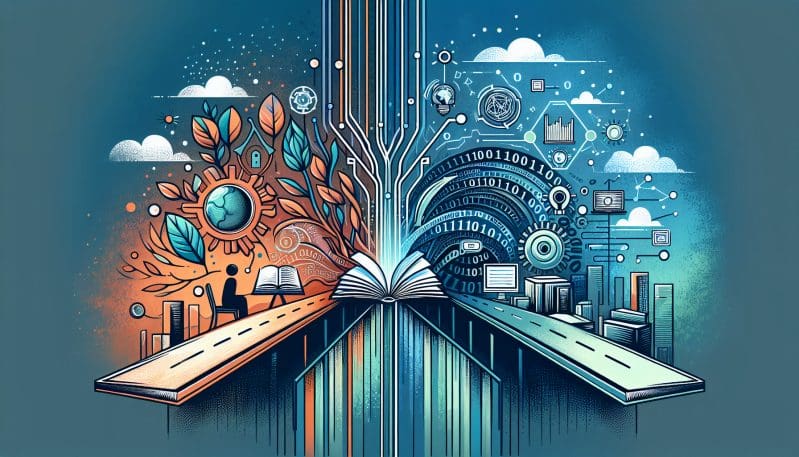The Role of Lifelong Learning in Future-proofing Workers Beyond the Digital Divide
- Home
- The Role of Lifelong Learning in Future-proofing Workers Beyond the Digital Divide
- Editors Desk
- January 11, 2024
- 0 Comments
In a world where technological advancements are rapid and relentless, the future of work is a topic of intense debate and concern. As industries evolve and new forms of employment emerge, a stark divide has become apparent—a digital divide that separates those with access to the latest skills and knowledge from those without. It is here that the concept of lifelong learning becomes not just an advantage, but an imperative. At ‘No Worker Left Behind’, we recognize the critical need to ensure that all workers, regardless of their starting point, are equipped with the tools and opportunities they need to thrive in a digital economy.
The rise of automation, artificial intelligence, and other technologies is transforming the workplace at an unprecedented pace. While these advancements bring opportunities for increased efficiency and new job creation, they also pose challenges for workers whose skills may become obsolete. It is not enough to merely prepare the next generation; we must also enable the current workforce to adapt and grow. Lifelong learning is the key to this adaptation—an ongoing process that enables individuals to continually acquire new skills and knowledge throughout their careers.
To bridge the digital divide, a multi-faceted approach that involves cooperation between various sectors is essential. Businesses, educational institutions, and policymakers must come together to create a framework that supports lifelong learning for everyone. One strategy is to integrate continuous education into the workplace. Companies can offer training programs for emerging technologies, provide access to online courses, and facilitate mentorship opportunities. By investing in their workforce, companies not only boost productivity but also build loyalty and a more adaptable team.
Educational institutions have a role to play as well. They can partner with industry leaders to ensure curricula are in line with the needs of the modern workplace. Offering modular courses, micro-credentials, and flexible learning options can cater to workers who need to balance their education with their job responsibilities. Additionally, schools and universities can engage in outreach programs to encourage communities that traditionally lack access to education, effectively narrowing the digital divide.
Policymakers, too, must champion the cause of lifelong learning by providing incentives for companies that invest in employee development and by supporting public access to education. Through grants, tax benefits, and policy reforms, governments can foster an environment where continuous education is not just optional but encouraged and facilitated across the entire workforce spectrum.
There are several case studies that illustrate the success of these partnerships. For example, AT&T’s collaboration with online learning platforms provided their employees with access to courses on subjects ranging from data science to web development, allowing them to stay ahead of the curve. Similarly, countries like Singapore have implemented nationwide skills development initiatives, such as the SkillsFuture program, which gives citizens credit towards lifelong learning activities.
To expand on these successes, we propose several actionable steps:
1. Increase public awareness about the importance of lifelong learning for career sustainability.
2. Encourage businesses to embed skill development into their corporate culture and make it a part of employee performance metrics.
3. Lobby for policies that facilitate and fund lifelong learning, especially for underrepresented and low-income groups.
4. Foster stronger collaboration between the private sector, educational institutions, and the government to create aligned, accessible, and affordable learning opportunities.
5. Evaluate and adapt programs based on the feedback and outcomes from participants to ensure they remain relevant and effective.
In conclusion, the digital divide presents a significant obstacle, but through concerted effort and strategic partnerships, we can ensure that no worker is left behind. Lifelong learning is not just an educational concept; it’s a tool for economic empowerment and a cornerstone for a more inclusive and resilient workforce. ‘No Worker Left Behind’ is committed to working towards a future where continuous education is a universal reality, benefiting individuals, businesses, and economies alike.
Choose Layout
Main Color Scheme
- RTL Version
- LTR Version

